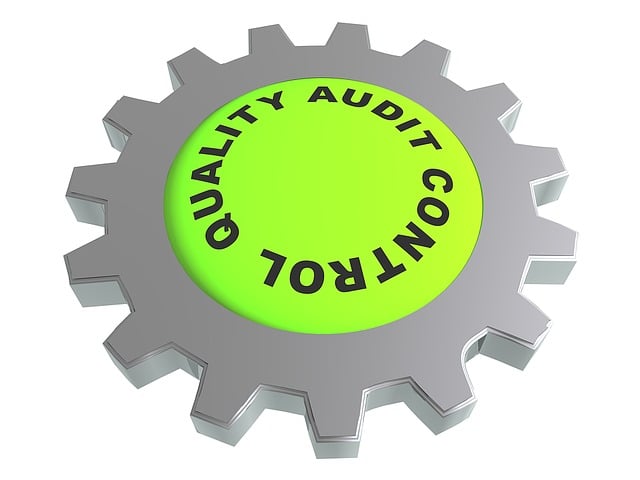Comprehensive SEO audits are crucial for businesses aiming to maximize their online presence. These in-depth evaluations go beyond basic optimization by scrutinizing a website's technical and on-page structure, including site speed, mobile compatibility, keyword usage, meta tags, and backlink profiles. By identifying issues like broken links or duplicate content, these audits provide actionable recommendations to maintain website optimization, enhance user experience, and improve search engine rankings over time. Regular checks, powered by tools like Google Search Console and data analysis, are essential for data-driven decisions and sustained online success.
In today’s competitive digital landscape, maintaining optimal search engine optimization (SEO) is paramount for online success. A Comprehensive SEO Audit serves as a powerful tool to evaluate and enhance your website’s performance. This article delves into the intricacies of understanding these audits, highlighting their significance in regular health checks. We explore key components, from on-page and off-page optimizations to technical analysis and keyword strategy effectiveness. By mastering these techniques, you can navigate the digital realm with confidence, ensuring your site excels in search rankings.
Understanding Comprehensive SEO Audits: An Overview

Comprehensive SEO audits are a crucial process for any business aiming to boost its online visibility and performance. These in-depth assessments go beyond surface-level optimization, delving into every aspect of a website’s technical and on-page structure to identify areas of improvement. By examining factors like site speed, mobile-friendliness, keyword usage, meta tags, and backlink profiles, comprehensive SEO audits provide an all-encompassing view of a website’s health in the digital landscape.
Such audits are not just one-time checks; they serve as ongoing tools for digital marketers and web developers. They help pinpoint issues that may hinder search engine rankings, such as broken links or duplicate content, and offer actionable recommendations to rectify them. This proactive approach ensures websites remain optimized, relevant, and competitive in the ever-evolving world of search engine algorithms.
The Importance of Regular SEO Health Checks

Maintaining an optimal online presence requires regular attention, and that’s where comprehensive SEO audits come into play. These in-depth evaluations are essential tools to assess and ensure your website’s health and performance in search engine results. By conducting periodic audits, you can identify potential issues, bottlenecks, and areas of improvement that may have gone unnoticed.
SEO is an ever-evolving field, with search algorithms constantly updating their criteria. Regular checks allow you to stay ahead of the curve, ensuring your website aligns with the latest industry standards. This proactive approach enables businesses to make data-driven decisions, enhance user experience, and ultimately boost their online visibility and rankings.
Key Components of a Successful SEO Audit

A successful Comprehensive SEO Audits goes beyond surface-level analysis. It involves a meticulous examination of various critical components that collectively contribute to a website’s online visibility and search engine rankings. These key elements include technical SEO, content optimization, keyword strategy, link building, and site performance metrics.
Technical SEO forms the backbone by ensuring your site is crawlable and accessible to search engines. Content optimization involves aligning text, images, and metadata with relevant keywords for better search relevance. A robust keyword strategy targets high-intent keywords that attract qualified traffic while effective link building establishes authority and credibility. Lastly, monitoring key performance indicators like organic traffic, bounce rate, and average session duration provides valuable insights for data-driven optimizations.
Identifying On-Page SEO Issues and Fixes

Identifying on-page SEO issues is a crucial step in any comprehensive SEO audit. These problems can often be easily overlooked but significantly impact search rankings. Common on-page SEO issues include poorly optimized meta titles and descriptions, keyword stuffing, low-quality content, and incorrect use of headings (H1, H2, etc.).
Fixing these issues involves a thorough review of website content to ensure each page has unique, relevant keywords incorporated naturally in titles, headings, and body text. Optimizing meta tags for accuracy and allure while also improving content quality through added value and depth will enhance the overall SEO health of the site. Regular checks and updates are essential to keeping on-page SEO robust and aligned with search engine guidelines.
Optimizing Off-Page SEO for Better Rankings

Off-page SEO is a crucial component in achieving higher search engine rankings, and it involves optimizing your website’s visibility beyond your site itself. This includes building high-quality backlinks from reputable sources, which act as votes of confidence for your website in the eyes of search engines. A comprehensive SEO audit should evaluate the strength of these external links, ensuring they are coming from diverse, relevant, and authoritative domains. By analyzing competitor strategies, identifying potential link building opportunities, and addressing any technical issues hindering link acquisition, businesses can significantly improve their off-page SEO performance.
Additionally, social media presence and engagement play a significant role in off-page SEO. Actively participating in industry-related conversations on social platforms not only increases brand visibility but also attracts backlinks naturally as users share valuable content. Regularly updating and optimizing your website’s meta tags, titles, and descriptions for search engines also contributes to overall SEO health, as these elements are visible on search results pages, enticing users to click through to your site.
Analyzing Technical SEO for Website Performance

Technical SEO plays a pivotal role in website performance, ensuring your site is optimized for search engines and users alike. A comprehensive SEO audit is an essential tool to analyze and identify areas where improvements can be made. This involves scrutinizing every aspect of your site’s technical structure, from crawlability and indexing to site speed and mobile-friendliness.
By conducting a thorough audit, you can uncover hidden issues that may hinder search engine visibility. For instance, broken links, duplicate content, and complex navigation can negatively impact user experience and search rankings. A well-executed Comprehensive SEO Audit provides actionable insights, allowing website owners to make data-driven decisions and implement targeted optimizations for enhanced online performance.
Measuring Keyword Strategy Effectiveness

Measuring the effectiveness of your keyword strategy is a crucial step in any Comprehensive SEO Audit. It involves analyzing how well your website ranks for targeted keywords and assessing user behavior on your site based on those keywords. Tools like Google Analytics and Search Console can provide valuable insights into which keywords drive traffic, bounce rates, and conversions.
By comparing your current performance to industry benchmarks and past data, you can identify high-performing keywords that are bringing in quality traffic and areas where optimization is needed. This process allows for data-driven decisions on content updates, meta tag adjustments, and link building strategies, ensuring your website continues to gain visibility and attract the right audience over time.
Evaluating Link Building Quality and Quantity

Comprehensive SEO audits often reveal that link building is a critical component of a website’s overall search engine optimization strategy. When evaluating a site’s backlink profile, both quality and quantity matter. The quantity refers to the sheer number of links pointing to your website, while quality measures the relevance, authority, and trustworthiness of those links.
A high-quality link comes from authoritative and relevant websites in your niche, offering valuable content that naturally draws in backlinks. In contrast, low-quality links can come from irrelevant or spammy sites and have little to no positive impact on your search rankings. SEO professionals should focus on acquiring quality backlinks through strategic outreach, creating compelling content that others want to link to, and maintaining a strong online presence.
Tools and Techniques for Comprehensive SEO Audits

Comprehensive SEO audits are essential for assessing a website’s performance and identifying areas of improvement. There are numerous tools and techniques available to conduct in-depth analyses, ensuring every aspect of search engine optimization is considered. These audits provide valuable insights into how search engines crawl and index pages, ultimately guiding content strategies and technical optimizations.
Some popular tools include Google Search Console, SEMrush, Ahrefs, and Moz, which offer features like keyword research, backlink analysis, on-page audits, and mobile-friendliness checks. Additionally, manual techniques such as site mapping, checking meta tags and headings, analyzing loading speeds, and examining internal linking structures are crucial for a thorough evaluation. These combined approaches help search engine optimization professionals uncover hidden issues, improve user experiences, and enhance overall online visibility.
